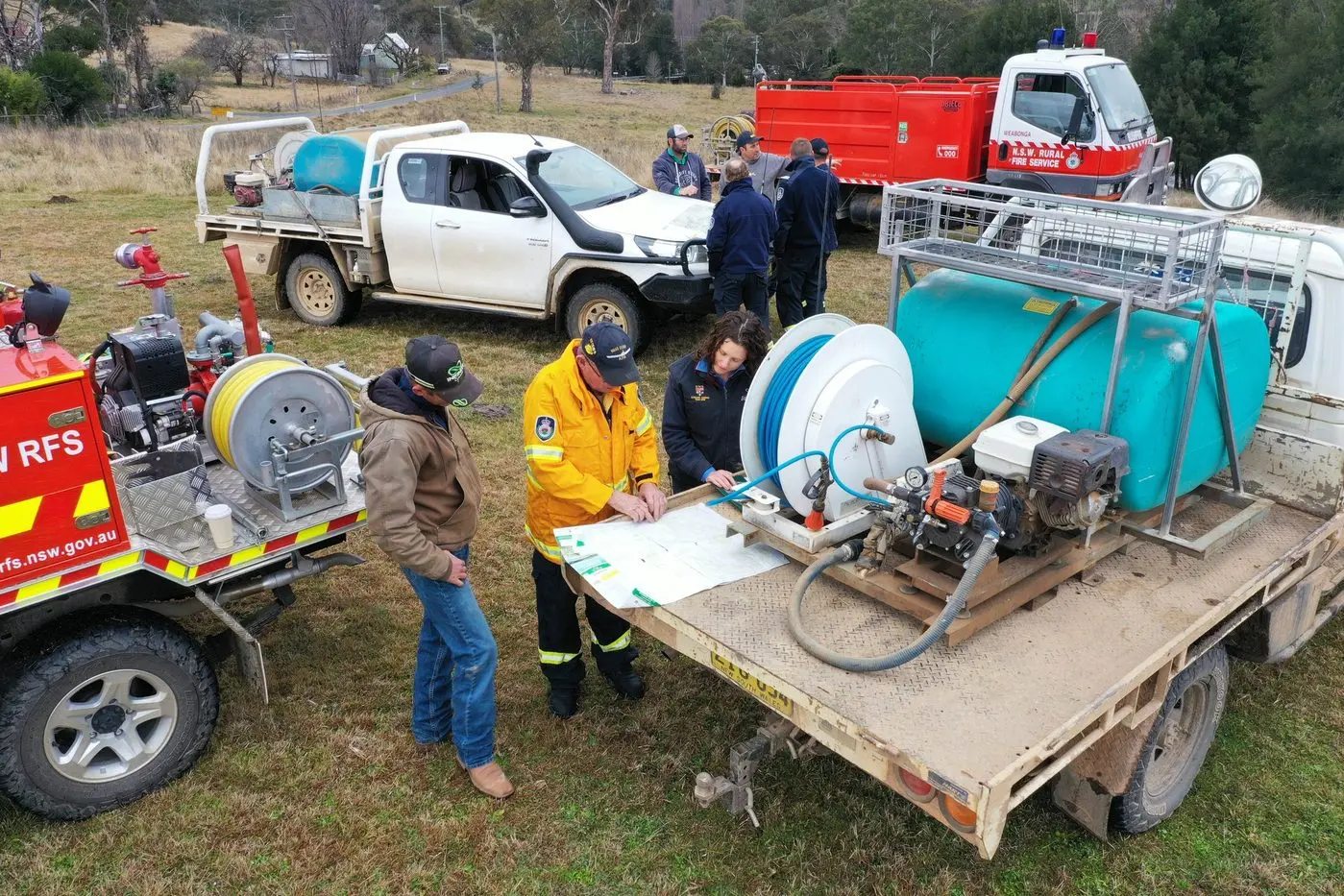PHOTO
New state government registration rules to allow rural landholders’ firefighting utes on public roads, covered by insurance, is a step forward for farmers responding to emergency bushfires near their properties, according to NSW Farmers.
The organisation has been advocating for a more practical pathway to register farm fire units (FFUs), also known as farm firefighting vehicles (FFFVs). The announcement ties in with the official start of the state’s 2025/26 bush fire danger period.
On Wednesday, 1 October the NSW government launched a conditional registration scheme to enable typically unregistered FFUs to be used legally and under the protection of insurance. FFUs are commonly small trucks, utes or trailers with fixed water, pumps or fire management equipment, kept on farms to be rapidly deployed in the event of a fire.
The move follows recent trials of around 350 FFVs, which supported their use in emergencies and proposed a conditional registration scheme.
FFVs are often used on private property and are not typically registered for use on public roads.
The legal use of these vehicles on public roads in emergency situations is an important reform which will allow farmers and rural landholders to attend nearby fires, not just those on their own property.
The new scheme offers a lower cost conditional registration, which includes inspection for a light vehicle and the issuing of a licence plate expected to be a maximum of $209.
The cost for conditional registration will drop after the first year to $126, including an inspection (or only $75 when inspection not required), subject to CPI and CTP increases.
Conditional registration balances the practical need for FFVs to be available as an emergency resource while ensuring vehicle safety standards on NSW roads remain high.
Landholder and captain of Nimmitabel Rural Fire Brigade, Ant Waldren of Kybeyan, said the decision is a “great move”.
“Landholders with IBCs and pumps on their utes were a key resource in helping the various brigades during the 2019, 2020 fires,” Mr Waldren said.
“They were selfless with their time and resources and always happy to defer to brigades on the fire ground.
“From a brigade point of view, we really appreciate the large and smaller landholders who have been maintaining fire trails at their own expense on private land. It makes the job a lot safer and more effective when brigade trucks turn up to a fire. Unfortunately funding for fire trails maintenance continues to be under resourced, and we reach out to all landholders to keep access tracks through their properties up to scratch as best they can, because it really does make a difference,” Mr Waldren said.
NSW Farmers’ president, Xavier Martin, said the new scheme was progress on solving the problem facing farmer volunteers after years of advocacy.
“Farmers must have the tools they need to safely and effectively fight fires, and it’s good to see the Minns government recognise that. The best response is a local response to the get bushfires under control as quickly as possible and we look forward to working with the NSW government to ensure this registration scheme is fit-for-purpose,” Mr Martin said.
“These vehicles are lightning quick at getting to fires and getting them under control – but it’s simply not practical to register these units when they’re primarily used on farm for just a few months each year.
“A more reasonable method to conditionally register these units for their specific purpose, so they can be used legally and under the protection of third-party insurance, is much needed – and this is a step towards that.”
With farmers able to apply to register their units under the scheme from 7 October 2025, Mr Martin said NSW Farmers would monitor the scheme to ensure it was fit-for-purpose for farmer volunteers across the state.
“There’s still conditions around distance, permanently attached firefighting equipment and vehicle inspections (including costs) that must be met as part of the scheme, so it’s certainly not a perfect solution, but this is an important starting point after two trials,” Mr Martin said.
“It has taken a long time to get here and this scheme has got to work for our farmer volunteers, who are the ones that use these units to fight fires and protect not just their farms, but their communities too.”
Minister for Roads, Jenny Aitchison said during the 2019/2020 bushfires she heard first-hand stories of the heroism and bravery shown by farmers standing side-by-side with the Rural Fire Service (RFS) and other emergency services to fight bushfires.
“We know that in many regional areas, farmers are often the first on scene at bushfires. This change is about ensuring farmers and other road users are safe when they respond to bushfire emergencies.”
NSW RFS Commissioner, Trent Curtin, said the reform comes at a crucial time.
“Farmers know their land better than anyone, and when a fire starts nearby their quick action can make all the difference.
“This reform will continue the strong relationship between landholders and the RFS, leveraging all available resources and the expertise and dedication of farmers in safeguarding our communities.”
Service NSW is ready to assist people with their applications with eligible customers able to apply and pay their registrations in-person at their nearest Service NSW Centre.
More details including eligibility requirements are available on the Service NSW website, www.service.nsw.gov.au





